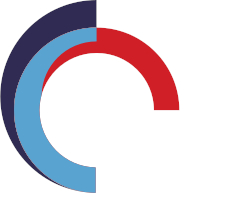Bachelor of Information Technology
Course Overview
The Bachelor of Information Technology (BIT) is a comprehensive degree program designed to equip students with the foundational knowledge, practical skills, and analytical capabilities required to excel in the ever-evolving field of information technology. The curriculum blends both theoretical concepts and hands-on experience, to ensures that graduates are prepared to tackle real-world challenges and contribute significantly to the IT industry. Majors are offered in either Data Analytics, Digital Enterprise, Networking, and Cybersecurity & Web Development. The B.IT comprises 24 units delivered over 6 terms culminating in one of four majors. Students may select one major.
Course Structure
Entry Requirement
| Admission Requirements | |
|---|---|
| Minimum Age to Apply | All applicants must be aged 18 years or over at the time of course commencement. |
| Academic Entry Requirements | Successful completion of the final year of secondary education (equivalent to a score of 60 in Australian ATAR) and achieving minimum grade as specified in the Country-Specific Academic Entry Requirements Guide. OR Successful completion of Diploma level (AQF Level 5 or equivalent) or above qualification from an institution listed in the Australian Government Country Education Profiles, or Successful completion of one full year (1 EFTSL) of an Associate Degree (AQF Level 6 or equivalent) or above qualification from an institution listed in the Australian Government Country Education Profiles, or Demonstrated skills and knowledge gained through paid or unpaid employment, formal learning and/or non-formal learning and evidenced by a current resume and employer references. A minimum of two years work experience in an area relevant to the intended program of study must be shown Successful completion with a pass mark of a mathematics unit (or equivalent) from either a secondary or post-secondary education provider, and where the post-secondary education provider is listed in the Australian Government Country Education Profiles, or |
| Language Requirement | |
|---|---|
| English Language Requirements | Applicants will meet the English language entry requirements if they provide evidence of completing any one of the following:
Year 11 and 12 at an Australian Secondary School / Registered Training Organisation, or,
International Baccalaureate Diploma (IB) in English, or,
A course of study with an Australian higher education provider. A course of study is a course or program that is formally approved or accredited that leads to the award of a qualification, or,
A Foundation Program at an Australian university, or,
Undertaken formal secondary or tertiary study in English in an overseas institution listed in the Australian Government Country Education Profiles at a level equivalent to the standard outlined in points a, b and c above.
Prior education should have been completed no more than five (5) years prior to the application. |
| IELTS Score (Minimum) | An overall minimum score of 6.0 with at least 5.5 in each component of the test |
| PTE Score (Minimum) | An overall score of 50, with a minimum of 42 in all sections |
| CAE Score (Minimum) | Minimum score of 169. |
Career Opportunities
Completion of this degree opens a range of pathways to further studies and employment possibilities for students. Pathways for further studies include Master of Information Technology. While employment possibilities may differ based on the single major chosen, Bachelor of Information Technology potential employment possibilities are:
Data Analytics major
ICT Support Officer
ICT Support Engineer
ICT Business Analyst
ICT Trainer
Systems Administrator
Computer Service Technician
Data Analyst
Software and Application Programmer
Software Developer
Database Administrator
Database Developer
Analyst Programmer
Digital Enterprise major
ICT Support Officer
ICT Support Engineer
ICT Business Analyst
ICT Trainer
Systems Administrator
Software Developer
Software Tester
Systems Analysts
Analyst Programmer
Computer Service Technician
Database Administrator
Database Developer
ICT Quality Assurance Engineer
Web Administrator
Networking and Cybersecurity major
ICT Support Officer
ICT Support Engineer
ICT Business Analyst
ICT Trainer
Systems Administrator
Computer Service Technician
Network Administrator
Network Analyst
Security Analyst
Network Engineer
Web Administrator
Web Development major
ICT Support Officer
ICT Support Engineer
ICT Business Analyst
ICT Trainer
Systems Administrator
Computer Service Technician
Network Administrator
Software and Application Programmer
Software Engineer
Web Designer
Web Developer
Mobile Application Developer
Analyst Programmer
Multimedia Specialist
Web Administrator
